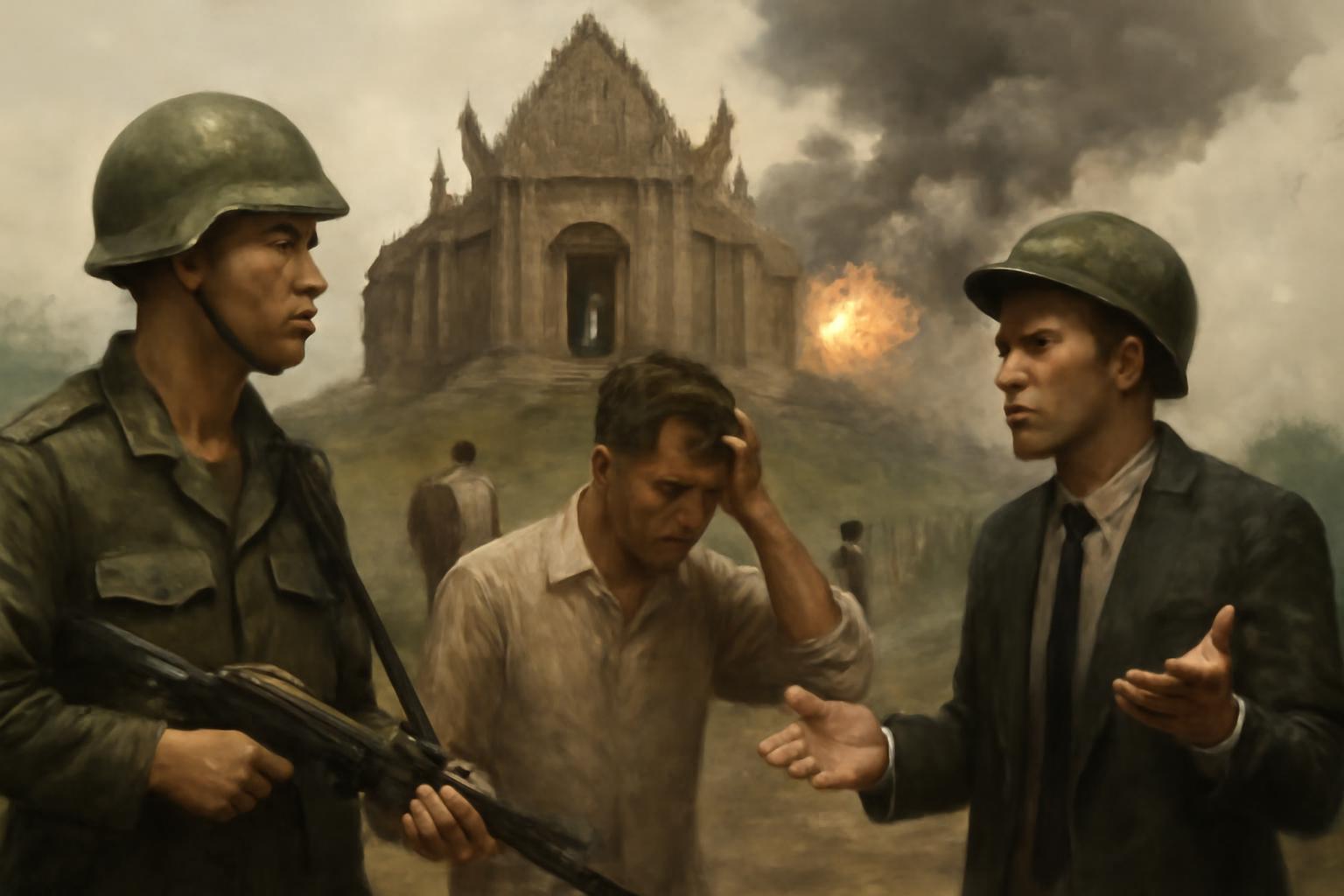How tedious, yet entirely unsurprising, to once again observe the spectacle of nations—this time Thailand and Cambodia—descending into the familiar rhythm of artillery, evacuation, and international hand-wringing over a dusty frontier and an admittedly lovely ruin. In sum, the two countries are trading accusations and artillery fire over a rather arbitrary border, with the ancient Prasat Preah Vihear temple serving as both a historic jewel and a tragically convenient excuse for nationalist bravado. The result? Smoldering villages, panicked civilians herded into gymnasiums, and the sanctimonious declarations of the so-called international community.
One must almost marvel at the predictability of this entire affair: two middling powers with little to offer the world save cheap resorts and, apparently, a penchant for live ammunition, squabbling over lines on a map like squabbling laborers in a muddy field. Meanwhile, UNESCO wrings its hands about damaged stones, and global dignitaries who couldn’t pin the temple’s location on a map if their lives depended on it issue polite admonishments and calls for dialogue—dialogue, as if these nations haven’t been squabbling over those same stones for generations.
Consider the irony for a moment: ordinary people—thousands of whom, I’m assured, number in the six-digits—are forced to abandon their paltry dwellings, all for the sake of political theatre orchestrated by men whose chief accomplishment is their ability to muster barely functional armies. One wonders whether those in charge give even the faintest thought to the plight of their countrymen or if their sense of history is so stunted that they view priceless sites such as Preah Vihear as merely convenient shells to lob grenades over.
Of course, the international community will convene. Resolutions will be passed by the UN Security Council, diplomats will perform their intricate ballet of platitudes, and nothing at all will be accomplished—at least nothing meaningful for those actually displaced, wounded, or killed. For those of us accustomed to a life safely cocooned in civilized society—where border disputes are settled over port rather than mortar fire—it is almost quaint to witness these reminders of humanity’s more primitive inclinations.
One hopes, perhaps naively, that by the next time this tiresome conflict resurfaces, the region’s leaders might rise above their parochial obsessions and approach the problem with actual statesmanship. And if they are unable, well, perhaps the world should stop pretending that mediation will ever elevate such affairs above the level of schoolyard squabbling—albeit with heavier consequences for those unfortunate enough to have been born on such unfashionable territory.
